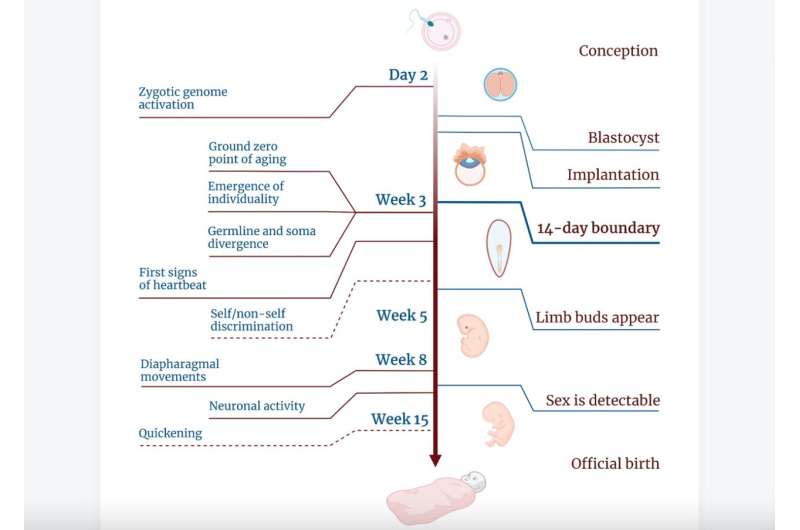This article has been reviewed according to Science X's editorial process and policies. Editors have highlighted the following attributes while ensuring the content's credibility:
fact-checked
proofread
The beginning of becoming a human—insights from researchers

A new review paper was published in advance by Aging, titled "The beginning of becoming a human."
According to birth certificates, the life of a child begins once their body comes out of the mother's womb. In this new review, researchers Polina A. Loseva and Vadim N. Gladyshev from Harvard Medical School pose the controversial question: when does their organismal life begin? Science holds a palette of answers—depending on how one defines a human life.
"Debates on when human life begins are rooted deep in philosophical history. However, until recently they have been limited by the state of technology," write Loseva and Gladyshev.
In 1984, a commission on the regulatory framework for human embryo experimentation opted not to answer this question, instead setting a boundary, 14 days post-fertilization, beyond which any experiments were forbidden. Recently, as the reproductive technologies developed and the demand for experimentation grew stronger, this boundary may be set aside leaving the ultimate decision to local oversight committees.
While science has not come closer to setting a zero point for human life, there has been significant progress in our understanding of early mammalian embryogenesis. It has become clear that the 14-day stage does in fact possess features, which make it a foundational time point for a developing human. Importantly, this stage defines the separation of soma from the germline and marks the boundary between rejuvenation and aging.
"We explore how different levels of life organization emerge during human development and suggest a new meaning for the 14-day stage in organismal life that is grounded in recent mechanistic advances and insights from aging studies," say Loseva and Gladyshev.
More information: Polina A. Loseva et al, The beginning of becoming a human, Aging (2024). DOI: 10.18632/aging.205824



















